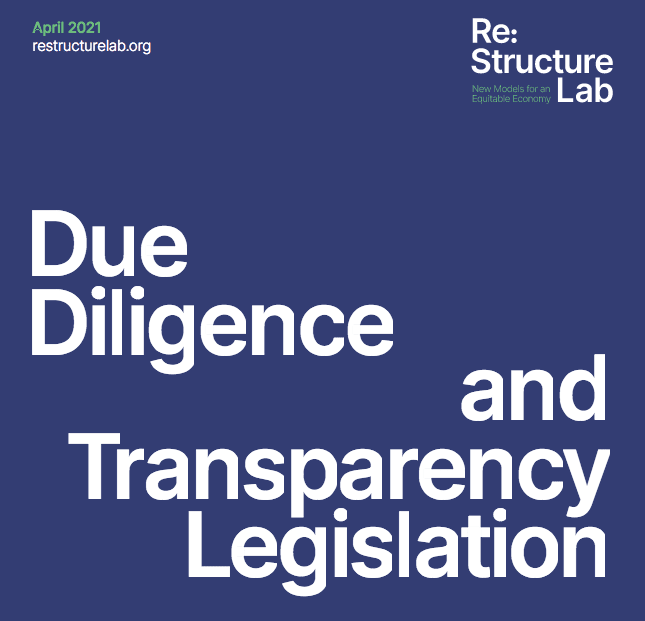
Due Diligence and Transparency Legislation
Governments and business are beginning to adopt human rights due diligence as a tool to combat forced labour in global supply chains. While this is potentially good news for workers facing exploitation, there is a danger that new due diligence legislation and practices will replicate the well-documented flaws of transparency legislation and reporting, reduced to yet another tick box exercise. This brief sets out the key requirements for strong and effective human rights due diligence legislation and practices to address the business drivers of forced labour along the supply chain.
We explain how governments can use mandatory human rights due diligence as a key tool, accompanied by broader legal reforms, to spur wide ranging changes to business practices along end-to-end supply chains. We provide key criteria for strong human rights due diligence in practice and explain how companies can implement effective due diligence programs that are sensitive to racial and gender inequality. We stress that implementing effective human rights due diligence is not just about understanding and mapping forced labour risks, which has been the focus of efforts to date, but rather is about action to address its root causes in supply chains.
Read more here.
